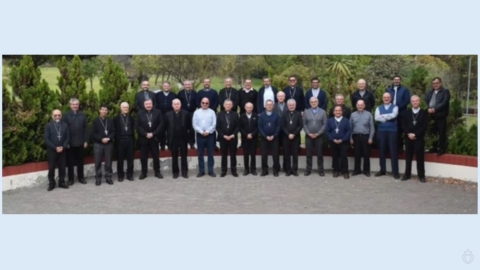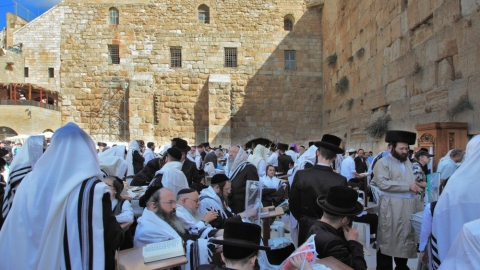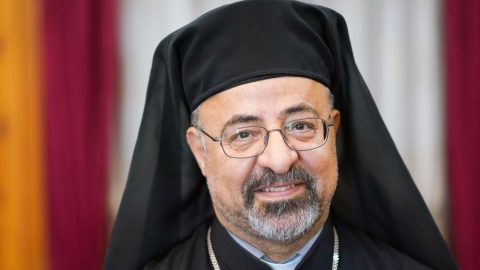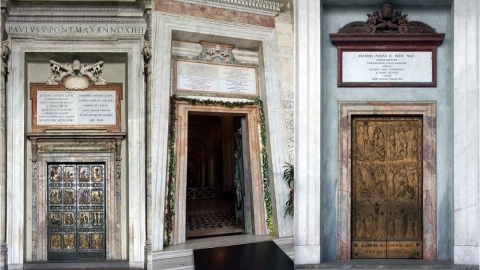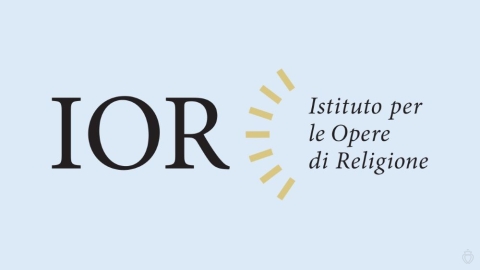Nigeria: Boko Haram continues to flourish

On October 23, 2014, Vatican news agency Fides announced the kidnapping of 60 girls in the state of Adamawa, in northeastern Nigeria, by the Islamic group Boko Haram. Rumour in the country has it that a peace agreement between the government of Abuja, the federal capital of Nigeria, and Boko Haram is in the works, according to which the 200 girls kidnapped at Chibok on April 14th last in northeastern Nigeria would be freed. The announcement of new kidnappings comes as the Parliament of Abuja approves the request of President Goodluck Jonathan for a billion dollars in emergency funding for arms to fight Boko Haram.
On October 28th, Father Patrick Tor Alumuku, the director of the social communications office of the archdiocese of Abuja, told Fides: “Boko Haram is split into several groups, and those who claim to negotiate on its behalf at this time are not part of its main component.” Over the last few weeks, numerous statements from the government about a possible treaty with the Islamic sect (which is flourishing in several states of northern Nigeria) have been made. Some sources claim that the “representatives” of Boko Haram are frauds trying to get government money, according to Fr. Alumuku. He emphasized that talk of negotiations is only heard on the government’s side, while Boko Haram is silent on the topic. The authorities are under pressure to find the kidnapped girls, explained Fr. Alumuku, and as a result they are making statements about treaties and liberation of the hostages that ultimately may not take place.
The situation of the kidnapped girls is much more complicated than might be thought, according to Fr. Alumuku. They have been forced to marry Boko Haram’s guerrillas, and this makes it difficult to free them by force, since instead of being kept together in one camp they are with various militants, dispersed throughout the region. Negotiating their freedom is also difficult, since they are now the wives of members of Boko Haram. “This does not mean that it is impossible to free them, but the process is more difficult than might be thought,” said Fr. Alumuku.
On October 31, Agence France Presse (AFP) stated that the armed Islamic group Boko Haram has refused to agree to any ceasefire with the Nigerian authorities, whom they accuse of lying in a video in the possession of AFP, and say they rule out any future prospect of negotiation. Boko Haram’s leader, Abubakar Shekau, says that the 219 secondary school students kidnapped in Chibok on April 14th have all coverted to Islam and married, and claims they are also holding a German kidnapped July 16th in Gombi, in the state of Admawa, hostage. According to a report from Human Rights Watch, Boko Haram is keeping captive over 500 women and girls, and forced marriages are common practice in the Islamic group’s camps.
(Sources: kipa-apic.ch – Fides – AFP – DICI no. 304, 07/11/14)
For further reading :
Nigeria and Cameroon: Increasing violence
Nigeria: Boko Haram dangerously gaining ground
Nigeria: Almost All the Churches of the Diocese of Maiduguri Have Been Destroyed
Nigeria : Ten Christians slaughtered
Nigeria: New attack on a Catholic church
Nigeria: Dialogue to Fight against Terrorism
Nigeria: start of “ethnic and religious cleansing”
